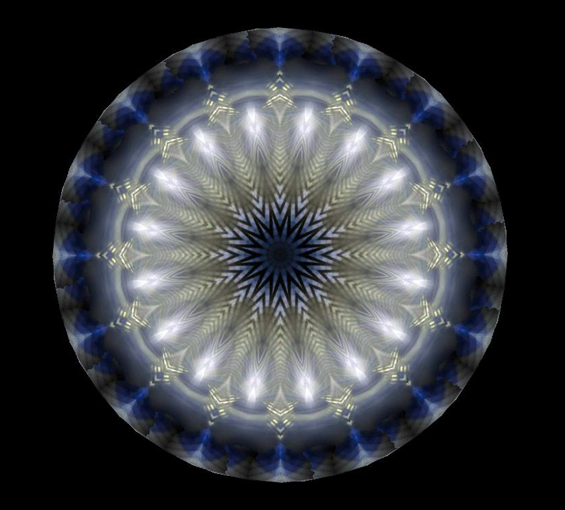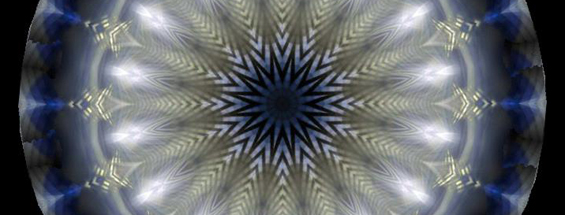Biologist Urmi investigates what scientists have to say about free will.
Do you think it is your conscious decision whether you want to live with a certain person, or if this could be the best job of your life? No. If you think that free will exists, you are wrong, as wrong as if you think that everything is predestined.
We value free-will so much, the capacity to act by reflection and choice, because it makes us feel autonomous, that life is under our control, that we are aware of what we do. But are we really aware of our decisions? Science says no. After years of believing that what makes us human is our ability to consciously decide, science now tells us that all our decisions are indeed unconscious.

Your brain always decides for you
According to John Bargh, a psychologist at Yale University, the idea that consciousness is the most important has always prevailed, that whatever we do must be consciously and deliberately intended. Actually, this is also one of the typical themes in the world of spirituality. However, recent research shows that even in the pursuit of conscious goals, motivations, desires, evaluations, likes and dislikes, consciousness has little to do. Because what happens is largely based on the unconscious analysis of information that comes from our senses and our previous experience, in particular our body’s implicit memory. By the way, I am not referring to Freud’s theories about the unconscious at all.
To test this idea, John D. Haynes, a neurologist at the Bernstein Center for Computational Neuroscience, conducted an experiment in which a number of people had to make a simple choice, yes or no, by pressing a button while undergoing a brain scan. They were totally free to choose as they liked. By analyzing the image of their brain activity the researchers found that a participant’s decision could be predicted seven seconds before it became conscious. That is: seven seconds before the participant ‘thought consciously’ that they had made a decision and they were ready to push the button!
The brain weighs the options first unconsciously, and only once it has made its choice, involves the conscious mind.

Justifying our choices, giving shape to our emotions
The influence of the unconscious in our decisions is enormous. Even when we think we are doing something consciously and carefully, in fact we have come to the solution much sooner than we think, largely thanks to our emotions.
In the world of science, Antonio Damasio was the first to affirm that emotions are very important when making a decision or in making choices, because they offer the right answers! If we feel that something is right or wrong, we will or will not do it.
These emotions come from the unconscious. It is intuition, a gut feeling, that hunch about what we are about to do. But, although people think they know why they do what they do, most of the time we are wrong in our motives.
We are constantly picking up impulses which come from outside and inside, from the memory the body retains from previous experience (different than the explicit memory that remembers details), guiding our proceedings unconsciously, to which we then add a nice story to consciously justify our actions.
To see how easy it is to manipulate our emotions, and with them our justifications, a study was done in which participants were asked to think about important people in their lives (mothers, fathers, friends), before conducting a test. Science has learned that when people think of certain people, specific responses are activated in the brain. For example, it is common when we think about our mothers to want to please her, impress her, to make her feel proud of us.
The study researchers made the participants think about their mothers with questions like: Where does she live? What is her house like? What are her daily activities? activating simultaneously their desire to make her proud of them. If after this suggestion participants were asked to perform a task, they always made an extra effort to accomplish. The odd thing is that every time the researchers explained to participants that they had been making an ‘extra effort’ in their performance because they remembered their mothers, participants rejected this idea and gave any other reason. Accepting this idea would have been to admit that other people could easily influence our decisions and make us do things we perhaps don’t want to do.
It is the same with feelings. First we should distinguish what Damasio means by emotions and feelings. Emotions are the body’s unconscious response to external stimuli. For example, if the stimulus is perceived as dangerous, the brain will detect this and signal the body to prepare to confront it, increasing heartbeat, releasing hormones such as cortisol and so on, producing what later we label as fear. When this set of corporal reactions reach consciousness and later thoughts, then we have feelings. Feelings are the rational explanation we elaborate to explain what is happening inside the body. Emotion is corporal, feeling is mental.
The emotions help us to mark things as ‘good’, ‘bad’, or ‘indifferent’, at an unconscious level, depending on the external stimulus and the previous experiences we have had with this stimulus, and which the body has stored as an implicit memory. Then, as it happens after every decision, we develop a justification, a plausible explanation for what we feel.
Every time your physiology is disrupted by something, an emotion is created. Every time you have an emotion, your normal physiology is disturbed, a conflict is created in yourself that is perceived as ‘something going wrong’, and you try to explain it in some way. It is possible the explanation has nothing to do with reality. We women know very well about this. Every month we confront changes in our physiology that many times come with emotions, and there is no more explanation to add!
Also, you should know that the brain stimulates some things and ignores others. If you suffer a very severe pain, but at that moment you are in danger, you will not feel the pain. The brain creates the pain, the brain can cancel it, Damasio explains. It is even able to create fake emotions. In this sense, it is very important to evaluate which emotions we decide to bring to the surface over and over again.

When consciousness arises
There are a thousand and one things we do automatically without the intervention of consciousness, from breathing to bicycling. In fact, the unconscious arose first in evolution, many millions of years ago, while consciousness developed more recently, in particular self-consciousness.
Before this happened, many unconscious systems, useful and adaptive, were guiding our behavior and allowing us to survive and reproduce successfully. However, evolution works by accumulation of variations. Without discarding the previously created, without deleting the unconscious systems, evolution built upon the old system while introducing the new capability that we call consciousness. Since then, both processes have run simultaneously in our brain, and both rely on the same information to carry out decisions.
If there are so many complex things we can do without using the conscious mind, what is the reason to use it? As John Bargh responded to the Spanish television program ‘Redes’: “This is what consciousness does the best: Time travel!”
Our unconscious mind takes care of the now, of what is needed to do in the present – our intuition only works in the present – while the other part leaves imagination to fly in a ‘conscious’ dialogue between the past, remembering what happened, and the future, planning the tomorrow. And we can do all this even while crossing a street, sometimes even while reading a book. This travel ‘mentally’ in time is what science says makes us different from animals. Moreover, we can’t have feelings without conscience, and possibly the reverse is also true. Both are connected in that continuum reflection of ourselves that has resulted in making us self-aware. But this does not mean that what we think we are is what we really are.
Is this kind of ‘time travel’ a blessing, or a curse? No doubt both. We have created many things that have improved our way of life through the conscious mind, the one that imagines the future; we have built cities, art, culture and science. But the ability to think about the world and ourselves has also separated us from having a first hand experience of exactly that, the world and ourselves. We have also destroyed much with the mind, too. We also sometimes cause our own problems resulting in imbalances like bipolarity, schizophrenia and depression.
The brain is far from perfect in its operation, a fact we often want to ignore or forget.
 Urmi has a PhD in Biological Sciences and works as a journalist for the Spanish Television. She also writes for other media. She has been involved with the sannyas world since 1995. Meditation and science are her two main interests. Currently she teaches The Science of Conscious Leadership, a program she designed and developed for the University of Tarragona, Spain. She is also a Human Design practitioner. She now lives in Cologne, Germany. urmisu (at) gmail.com
Urmi has a PhD in Biological Sciences and works as a journalist for the Spanish Television. She also writes for other media. She has been involved with the sannyas world since 1995. Meditation and science are her two main interests. Currently she teaches The Science of Conscious Leadership, a program she designed and developed for the University of Tarragona, Spain. She is also a Human Design practitioner. She now lives in Cologne, Germany. urmisu (at) gmail.com
Art by Bill Brouard from Visual Alchemy © Copyright 2012
Further reading in Osho News:
Free Will and Meditation by Satyananda
The Secret Life of the Brain by Urmi
Don’t Just Do Something. Stand There from The Los Angeles Times
Why the Law of Attraction Doesn’t Work by Anando




Comments are closed.